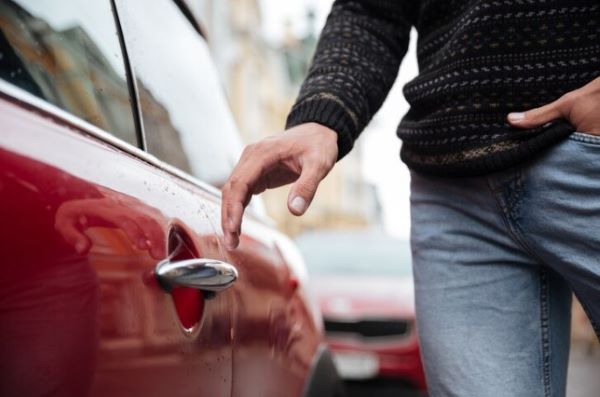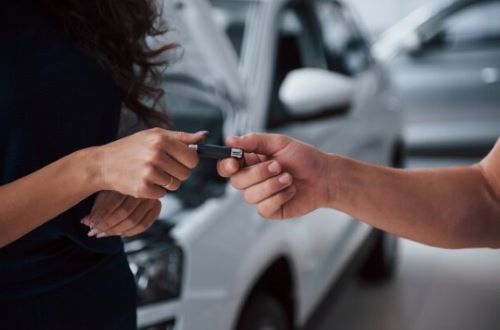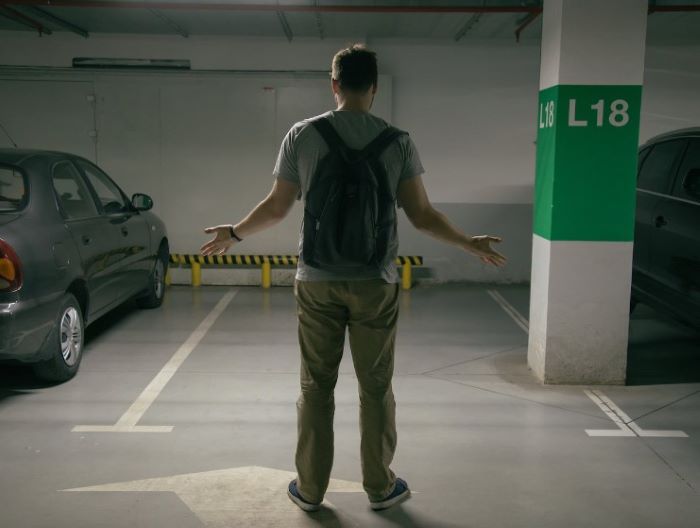Vehicle theft is a serious crime in North Carolina. Auto theft law in the state covers all types of motorized vehicles for which stiff penalties are carried. These laws apply to anyone, whether you’re the one who’s stolen the vehicle, using it, or buying it. Therefore, you must be extra careful when buying a used vehicle to ensure it wasn’t stolen. It also pays to know how to report and investigate auto theft cases in NC to avoid violating the law.
What Are Auto Theft Laws in North Carolina?
The best way to prevent your involvement with a stolen motor vehicle is to be aware of the state’s laws against auto theft. There is no specific law that details punishment for an auto theft crime. Instead, it falls under North Carolina’s general crime of larceny or theft. According to this law, anyone who takes another person’s motorized vehicle to gain possession of it permanently has committed larceny. If you receive or possess a stolen vehicle, you can still be charged under the crime of larceny in NC. It refers to any individual who uses a stolen vehicle or buys one.
Larceny does not just apply to a stolen motor vehicle. The law could also punish someone for stealing or possessing motor vehicle parts, especially any item that costs more than $1,000. The total cost covered in this law refers to the cost of labor and replacement for the stolen motor vehicle part.
In North Carolina, larceny is a Class I felony offense. There are other motor vehicle crimes in NC, but we’ll discuss auto theft crimes for the purpose of this article.

What if You’ve Purchased a Stolen Car in NC?
As mentioned, thousands of vehicles are stolen in NC yearly, most of which are sold to the general public. Therefore, anyone buying used motor vehicles should be extra careful about who’s selling the vehicle to them to ensure it has not been stolen. You could be charged with a class H felony offense if you purchased a motor vehicle that you know or have reason to suspect was stolen. The value of the motor vehicle is irrelevant to the case, unlike the theft of the motor vehicle parts.
If you unknowingly bought a stolen second-hand vehicle in North Carolina, you will face a felony charge. A class H felony charge faces penalties of 4 to 32 months in prison, fines, probation, and community service if the vehicle value exceeds $1,000. For vehicles valued at less than $1,000, it is a class 1 misdemeanor that could have a penalty of 120 days in prison.
Reporting & Investigating Auto Theft Cases in NC
The first step to fighting auto theft is to report the incident. Report the vehicle theft to law enforcement agencies, particularly the North Carolina Division of Motor Vehicles & Theft Bureau.
When reporting the auto theft incident, you will be asked to provide information about the stolen vehicle, such as a thorough description (make, model, and color) and license plate numbers. And reporting to the authorities should be done as soon as the incident happens. You may also report the incident through the NC DMV License & Theft Portal.
Investigating an auto theft case varies depending on the nature of the crime. There are three general statutes under the North Carolina auto theft law. The first one is larceny or vehicle theft (NC General Statutes 14-72). The second one is receiving or transferring a stolen vehicle (NC General Statute 14-60). The third and final one is the unauthorized use of a motor vehicle (NC General Statute 14-72.2).
North Carolina auto theft law follows a complex sentencing formula, so while there are recommendations on penalties according to the nature of the crime, the authorities will also consider the circumstances surrounding the crime. Suppose you are wrongfully convicted of auto theft or unknowingly purchase a stolen vehicle in North Carolina. In that case, you must work with lawyers who are experienced in handling stolen vehicle cases in NC. They can build a formidable defense to help your case and protect your constitutional rights during the investigation process.

Possible Defenses Against Auto Theft in NC
When charged with an offense relating to a stolen vehicle, you should know the specific charge against you. For example, there is a distinction between possessing a stolen vehicle and its unauthorized use. An experienced attorney with auto theft cases can help you identify the differences between the two cases and establish a defense to suit your specific circumstances.
Here are possible defenses you could use against auto theft cases in NC.
- Consent
The primary defense in auto theft charges in NC is consent. If someone believes they have authorization or consent from the vehicle owner to use the said vehicle, they could be spared the auto theft charges against them. It shows no intent to take the vehicle permanently, especially as they have the owner’s consent.
Depending on the circumstances of your case, your attorney can build a case around this defense strategy. However, this defense won’t work if there are a series of incidents or if you have a criminal history of unauthorized vehicle use. You need an attorney to gather evidence demonstrating consent from the owner of the vehicle.
- Mistake of Fact
This defense applies to someone who buys a vehicle they are unaware was stolen by the seller. Therefore, they can use this as a defense in committing larceny or vehicle theft.
- No Permanent Deprivation
According to the NC auto theft law, larceny charges apply to an individual who has the intent to permanently deprive the owner of the use or possession of their vehicle. Instead, the auto theft charge could be downgraded to joyriding or carjacking, with lesser penalties.
Auto theft charges in NC are a serious crime that require legal assistance and advice. Don’t take these lightly; you could face felony charges if your case isn’t correctly handled. Speak to an attorney in NC specializing in auto theft cases and defense to mitigate your sentence


